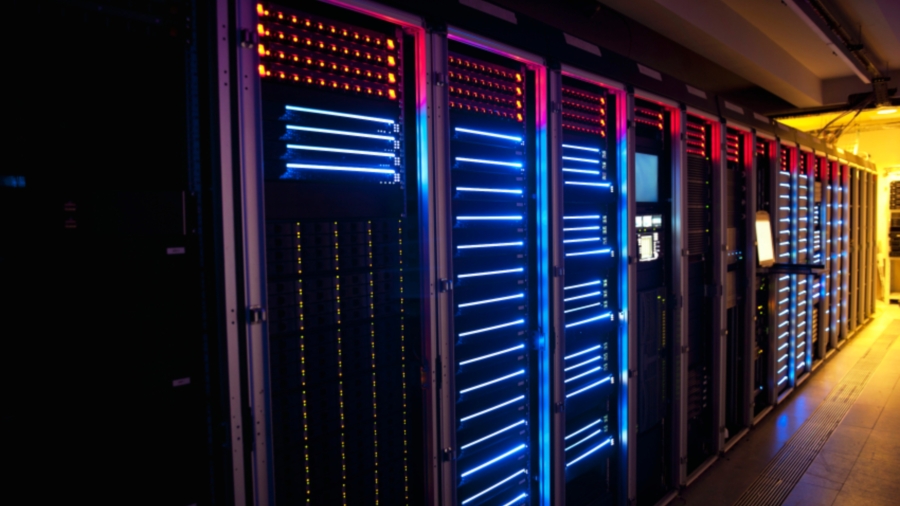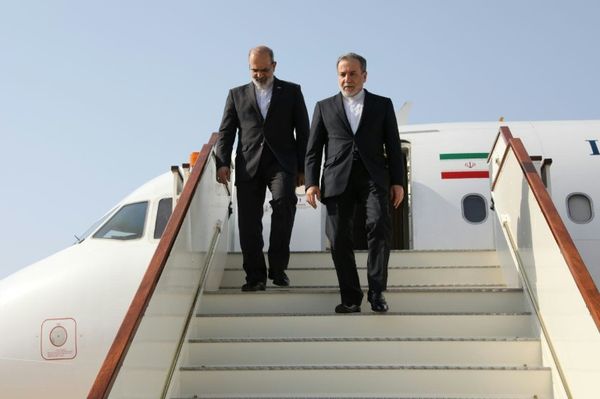
Hyperscalers like AWS, Microsoft, and Google are taking up more and more space in datacenters and the hardware required for AI such as the best large language models (LLMs) is requiring more and more energy. This is creating a strain on companies running datacentres and the businesses that use them.
In April 2024, Microsoft invested $1.5 billion in G42, an Abu Dhabi based technology company, with the goal for G42 to create more datacenters strengthening the UAE's bid to become a global datacenter hub and to further the advancement of AI.
We spoke with G42 about how investment in datacenters is benefitting everyone, how G42 are managing energy infrastructure, and why the UAE is the ideal place to create a global datacenter hub. Plus, the challenges that data protection laws pose when it comes to cross border data transfer.
It's getting more difficult for smaller companies to procure and afford space in datacenters. Should there be and are there any initiatives to support smaller businesses with their colocation needs as hyperscalers like AWS, Microsoft, and Google take up space ?
While the rise of hyperscalers has made it challenging for smaller companies to secure space in data centers, Khazna addresses this issue by offering a retail colocation model through some of its customers. These customers lease space from Khazna and sublease it to smaller enterprises, providing them access to the same high standards of reliability, power, cooling, and perimeter security that larger companies enjoy. This model ensures that even smaller businesses can benefit from advanced datacenter infrastructure without the prohibitive costs associated with direct leasing from hyperscalers.
Investment in data centers helps all businesses by creating a robust and scalable infrastructure that can support a wide range of digital and operational needs. For smaller companies, this means access to state-of-the-art facilities and technologies that they might not be able to afford independently. It also fosters a competitive environment where various service providers can offer tailored solutions to meet the specific needs of smaller enterprises, thereby promoting innovation and growth across the board.
Energy is the biggest challenge for datacenters at the moment. Hardware is consuming a lot more power and cooling can require significant infrastructure upgrades. How is Khazna overcoming these challenges?
As the world intensifies its focus on achieving Net Zero, addressing the significant energy consumption and cooling requirements of data centers is imperative. At Khazna Data Centers we are spearheading sustainable initiatives to mitigate our carbon footprint. This includes transitioning to renewable energy sources like solar and wind power, reducing reliance on conventional energy and lowering greenhouse gas emissions. Khazna also adopts innovative cooling methods such as adiabatic-free cooling chillers to optimize energy usage and minimize power consumption. Our modular approach enhances energy efficiency, scalability, and uptime, while our partnerships with entities like Emerge and BEEAH Digital further underscore our commitment to sustainability in the data center industry.
The recent launch of Khazna’s flagship AUH6 data center facility is a prime example of these sustainable initiatives. Located strategically in Masdar City, an urban development renowned for its commitment to sustainable practices and innovative technologies, AUH6 aligns with Khazna’s Future First Strategy. Through Khazna’s collaboration with Emerge, a ground-mounted solar photovoltaic (PV) plant has been developed to efficiently provide electricity to fuel the operations at AUH6. This solar plant boasts an impressive installed capacity of 7 megawatts peak (MWp). The external architecture of the AUH6 was also crafted to protect the facility from the adverse effects of direct sunlight. This design approach effectively reduces the infiltration of heat into the building, therefore enhancing the data center’s efficiency and sustainability.
Mark Zuckerberg recently said in an interview that energy will be the bottleneck in the advancement of AI, not processing power. Do you agree with that, and do you think companies like Khazna will be able to keep up with demand?
The increasing power demands of AI training and inference workloads are substantial, and addressing these needs will be crucial for future growth.
Khazna is well-positioned to keep up with this demand due to our strategic approach to land selection and energy procurement. Khazna has rigorously selected sites that provide robust power availability, ensuring that our data centers can meet the growing energy requirements of AI applications.
Moreover, Khazna's commitment to sustainability and innovation, such as using adiabatic cooling technology and transitioning to biofuel for diesel generators, demonstrates their proactive approach to energy management. This forward-thinking strategy positions Khazna as a leader in the industry, capable of supporting the intensive energy needs of AI advancements while maintaining operational efficiency and environmental responsibility.
Is the UAE government supportive of becoming a global datacenter hub and do you think the scale that we need to invest in datacenters can be achieved without government support?
Certainly. The UAE government strongly supports positioning the country as a global datacenter hub, evident in their proactive stance towards creating a favourable regulatory environment and investing in digital infrastructure. While private sector investment is significant, government support is essential to achieve the scale required for building and expanding datacenter infrastructure. Collaboration between the public and private sectors is crucial to realizing ambitious goals for datacenter investment and growth.
In addition, the UAE government had laid out its digital ambitions for its 2025 strategy and was the first to appoint a minister of AI, further cementing the importance of digital and the inability to progress without the data centers providing the foundation. Recently, the UAE government launched their Universal Blueprint for Artificial Intelligence that outlines plans to solidify Dubai's status as a global technology and innovation hub. As a part of this initiative, a comprehensive plan will be announced for attracting data centers to Dubai, emphasizing their role as a digital economy staple.
Are there any geographical/geological advantages to creating a datacenter hub in the UAE?
Absolutely! Establishing a datacenter hub in the UAE, particularly with Khazna, leverages the country's strategic location for low-latency connectivity between East and West. Additionally, the UAE boasts existing world-class infrastructure, combined with a stable geological landscape that minimizes the risk of natural disasters, and also offers a huge talent pool to those who choose UAE as a hub. This enables Khazna to offer reliable, secure, and high-performance solutions tailored to the needs of global businesses.
Do data protection laws like the EU's GDPR and China's PIPL make it difficult to create a global datacenter hub as there are strict controls on how people's data is stored and processed outside of borders?
The datacenter market globally is experiencing significant growth and development, which indicates that protection laws are not a hindrance to the creation of a global datacenter hub. The market worldwide is projected to grow by 6.56% between 2024 and 2028, resulting in a market volume of USD 438.70 billion in 2028.
The GCC datacenter market specifically, is expected to grow at a compound annual growth rate of 8.14 percent between 2022 and 2028 and expected to reach $5.23 billion by 2028. The UAE data center market size alone is estimated at 429.34 MW in 2024, and is expected to reach 841.03 MW by 2029, growing at a CAGR of 14.39% between 2024 and 2029.
Furthermore, Sheikh Hamdan bin Mohammed bin Rashid Al Maktoum, Crown Prince of Dubai and Chairman of the Executive Council, has recently announced the Dubai Universal Blueprint for Artificial Intelligence, which is a yearly plan focused on harnessing the potential of technology and innovation hub. Notably, the first phase of the plan includes allocating land for data centers to attract foreign investments, develop world-class infrastructure and enhance Dubai’s digital transformation journey.







